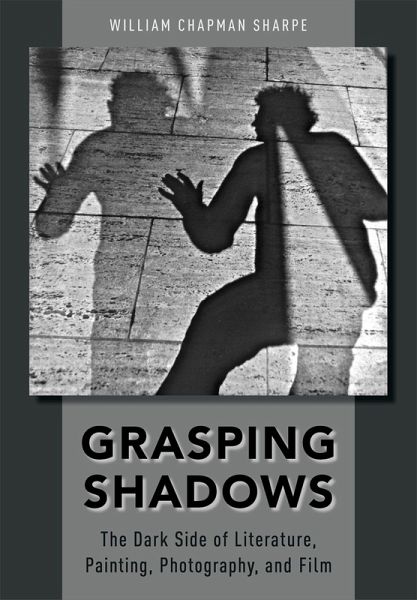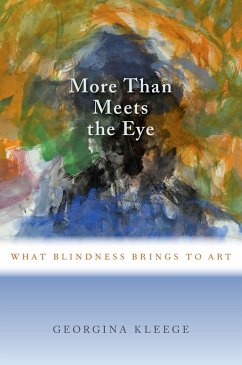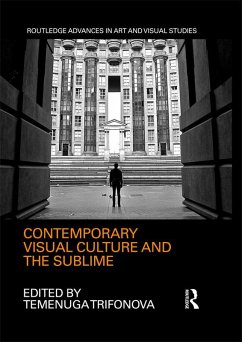
Grasping Shadows (eBook, PDF)
The Dark Side of Literature, Painting, Photography, and Film
Versandkostenfrei!
Sofort per Download lieferbar
31,95 €
inkl. MwSt.
Weitere Ausgaben:

PAYBACK Punkte
16 °P sammeln!
What's in a shadow? Menace, seduction, or salvation? Immaterial but profound, shadows lurk everywhere in literature and the visual arts, signifying everything from the treachery of appearances to the unfathomable power of God. From Plato to Picasso, from Rembrandt to Welles and Warhol, from Lord of the Rings to the latest video game, shadows act as central players in the drama of Western culture. Yet because they work silently, artistic shadows often slip unnoticed past audiences and critics. Conceived as an accessible introduction to this elusive phenomenon, Grasping Shadows is the first book...
What's in a shadow? Menace, seduction, or salvation? Immaterial but profound, shadows lurk everywhere in literature and the visual arts, signifying everything from the treachery of appearances to the unfathomable power of God. From Plato to Picasso, from Rembrandt to Welles and Warhol, from Lord of the Rings to the latest video game, shadows act as central players in the drama of Western culture. Yet because they work silently, artistic shadows often slip unnoticed past audiences and critics. Conceived as an accessible introduction to this elusive phenomenon, Grasping Shadows is the first book that offers a general theory of how all shadows function in texts and visual media. Arguing that shadow images take shape within a common cultural field where visual and verbal meanings overlap, William Sharpe ranges widely among classic and modern works, revealing the key motifs that link apparently disparate works such as those by Fra Angelico and James Joyce, Clementina Hawarden and Kara Walker, Charles Dickens and Kumi Yamashita. Showing how real-world shadows have shaped the meanings of shadow imagery, Grasping Shadows guides the reader through the techniques used by writers and artists to represent shadows from the Renaissance onward. The last chapter traces how shadows impact the art of the modern city, from Renoir and Zola to film noir and projection systems that capture the shadows of passers-by on streets around the globe. Extending his analysis to contemporary street art, popular songs, billboards, and shadow-theatre, Sharpe demonstrates a practical way to grasp the "dark side" that looms all around us.
Dieser Download kann aus rechtlichen Gründen nur mit Rechnungsadresse in A, B, BG, CY, CZ, D, DK, EW, E, FIN, F, GR, HR, H, IRL, I, LT, L, LR, M, NL, PL, P, R, S, SLO, SK ausgeliefert werden.













